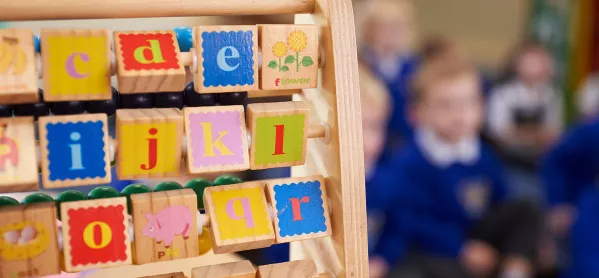Families are preparing to challenge the government in court over the Reception baseline assessment - saying that the tests for four- and five-year-olds risk causing anxiety and stress to children.
The baseline assessment is due to be piloted this September in more than 9,000 schools and to become statutory in September 2020.
Need to know: Reception baseline assessment
Sats: One in five passes science sample test
Assessment: Baseline pilot snubbed by more than 7,000 schools
It is designed to be a 20-minute one-to-one assessment of children’s maths and language skills.
But solicitors acting for the three families from the North West say that they are worried about the immediate distress that some children may experience during the assessment - and the longer-term impact of the baseline feedback being used to label or stream children at a young age.
Baseline assessment ‘could put children at risk’
“The education secretary is under a legal duty to promote the welfare of children taking part in the Reception baseline assessment and its upcoming pilot scheme,” said Lisa Richardson, of law firm Irwin Mitchell, which is representing the families.
“Our clients’ parents are concerned that going through the assessment process could put their children at risk of harm.
“They are worried about the immediate distress experienced by some children in the assessment process itself, and the longer-term impact on their education of schools potentially using the feedback they will get from the assessment to label or stream children at such a young age.
“They are concerned that being asked to complete tasks that are unfamiliar or too difficult could cause children to feel anxious and stressed and to associate that feeling with being at school and learning. Studies have even suggested that some children just starting school can associate failing in a task with how good they are as a person.”
The baseline assessment will have no pass mark and teachers will not get the results, which will be used only for measuring progress between Reception and Year 6, instead of receiving a “narrative statement” of how their pupils have done.
The families are calling on the education secretary not to proceed with the baseline pilot until the families’ concerns about risks of harm have been properly considered and addressed.
The families are due to present their concerns at a permission hearing in the High Court on 24 July. This comes after a judge originally refused the families’ permission to proceed with a judicial review of the government’s decision to go ahead with the pilot scheme.
If permission is granted on 24 July, there will be a further hearing to examine in detail whether the government’s decision to proceed with the baseline assessment and its pilot scheme has been lawful.
A Department for Education spokesperson said: “To suggest that the reception baseline assessment could cause harm to children is nothing more than scaremongering. This sort of alarmist language describing an assessment that children should not even realise is taking place, is extremely unhelpful.
“The reception baseline assessment is a quick check of a child’s early language and ability to count when they start school to help inform teachers - nine in ten schools already carry out on-entry checks. The reception baseline assessment has gone through a robust test development process, as do all of our assessments, and will not be used to judge or label individual pupils.”




